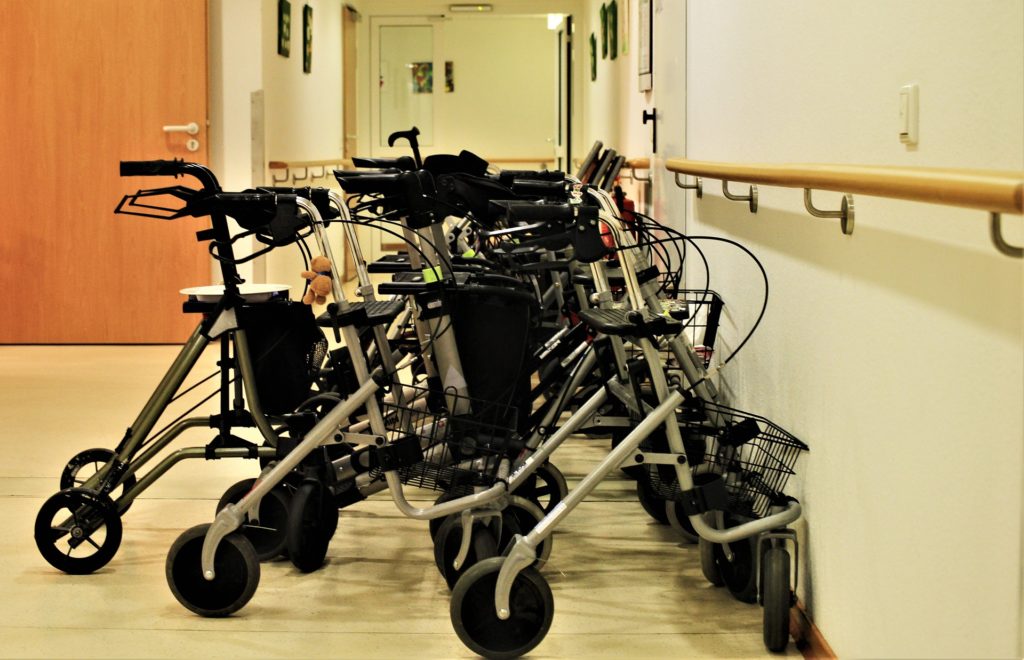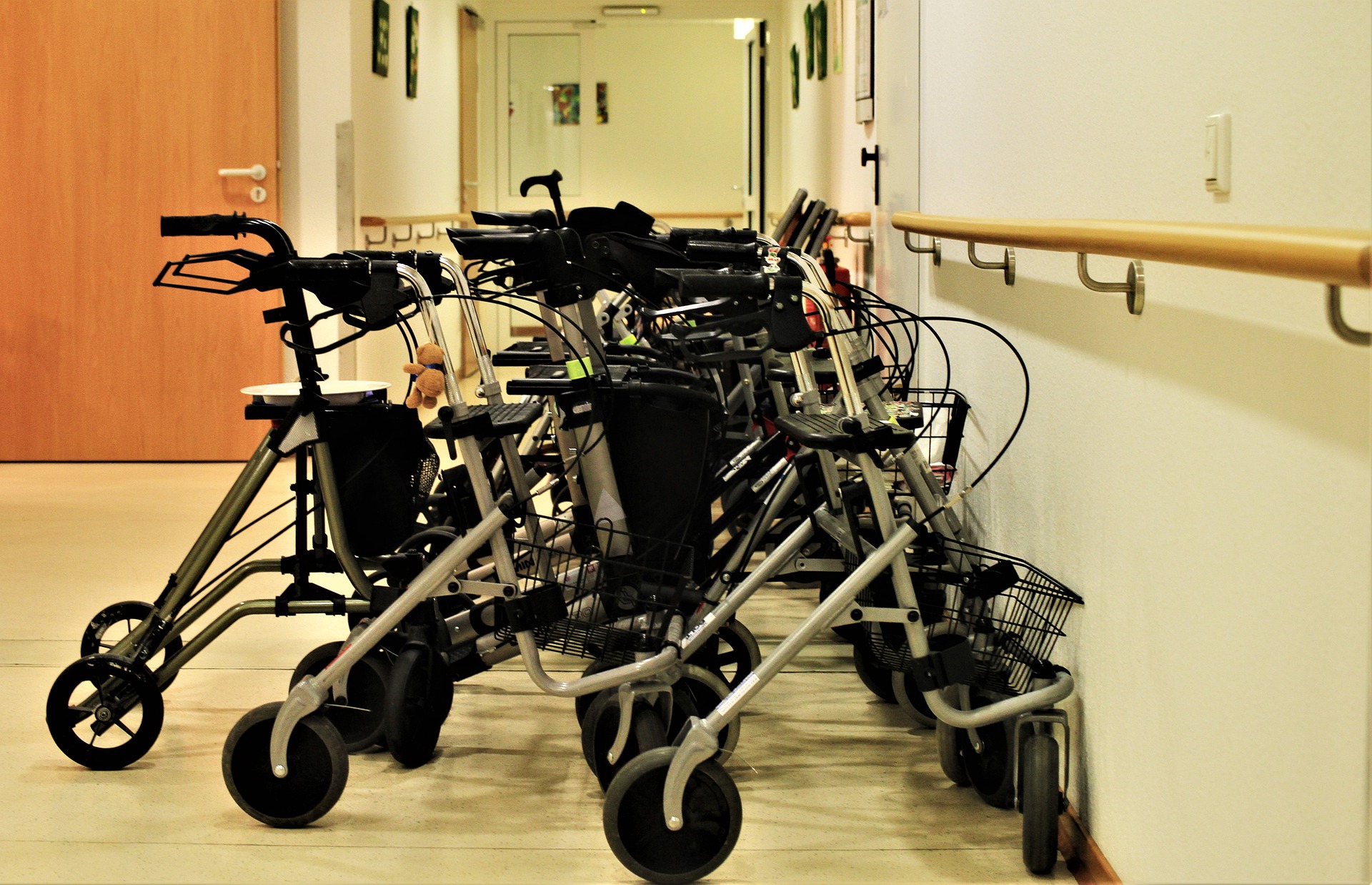A nursing home resident will need to pay some or most income to the facility once Medicaid benefits have been approved. The nursing home may provide you with paperwork upon admission to have Social Security and pension income paid electronically, or otherwise paid automatically directly to them, rather than being deposited in your bank account.
Determining Whether Your Income Should Be Paid Directly to Your Nursing Home
We are often asked by our clients whether they should sign this paperwork relinquishing control over the monthly income to the nursing home. All paperwork presented to you by the nursing home should be reviewed by an elder law attorney, but here are some considerations we discuss with clients when making this decision:
1. Is this a long-term or a short-term stay?
If the nursing home placement is temporary, then it is usually best to not have the income automatically paid directly to the facility. It is better to write a check each month. This seems  obvious, but in the raft of paperwork presented to families during a nursing home admission, one of the forms may give permission for the facility to have Social Security and pension income paid automatically to them, discontinuing deposits to the resident’s bank account. In some cases, this is a good idea, but not normally in the case of a short-term situation. However, if the nursing placement is going to be long-term, then that is a factor that makes it more sensible to have the income paid directly to the facility.
obvious, but in the raft of paperwork presented to families during a nursing home admission, one of the forms may give permission for the facility to have Social Security and pension income paid automatically to them, discontinuing deposits to the resident’s bank account. In some cases, this is a good idea, but not normally in the case of a short-term situation. However, if the nursing placement is going to be long-term, then that is a factor that makes it more sensible to have the income paid directly to the facility.
2. What about health insurance premiums?
Are there health insurance premiums that need to be paid, and do we feel confident that the facility will make sure that this is handled properly? The Medicare B premium is deducted automatically from Social Security, so we don’t need to worry about that in most cases, but if a monthly check is written for health insurance or there is a monthly debit from the Medicaid recipient’s bank account, then re-directing the income to the facility may disrupt payment the supplemental health insurance premiums. A conversation with the business office manager can usually address this concern. If you wish to retain control over the income and payment of health insurance, then perhaps you do not wish to have the income paid automatically to the facility.
3. Is there a spousal allowance of income?
If there is a spouse at home, is that spouse granted a “spousal allowance of income”? If so, then that spouse at home is likely going to prefer to retain control over that income, and in these cases, we normally do not recommend that the nursing home resident’s income be paid to the facility. We do, however, make a computation and recommend that an estimated payment of income be remitted each month if it appears from that computation that the spouse at home will not be permitted to retain all the nursing home resident’s income as part of the spousal allowance of income.
4. Are we ever qualifying for Medicaid?
If this is a case where the nursing home bill is going to be paid privately without Medicaid long-term care benefits for the foreseeable future, then there may be no reason to have the income automatically paid to the facility – at least in the short term. A check can be written directly to the facility each month, and income can continue to be deposited to the nursing home resident’s bank account each month. If you are privately paying the nursing home with no end in sight, you should consult with an elder law attorney since there may be ways to legally qualify for Medicaid benefits, or steps that should be taken to prepare for the eventual day when funds run low and a Medicaid application becomes necessary.
5. Are we happy with the quality of care at this facility?
If we are pleased with the quality of care at the nursing home and not contemplating a move, then it can make sense to have income automatically directed to the facility. If we sense that the quality of care is not where it should be and believe that we may wish to transfer to a different facility in the future, then automatic payment of income to the nursing home may not be a good idea. While it is true that the income can be switched again to the next facility, it can be a paperwork hassle to do so, and there can be a lag time where payments are going to the old facility and creating extra work that can otherwise be avoided.
6. Who is responsible for the task of paying income to the facility?
- Nursing home resident. If the nursing home resident is writing the check himself or herself, and there is no back-up such as a power of attorney to write checks, then automatic payment of income can make sense. Setting this up guards against the non-payment of income if the nursing resident suffers a setback and is not able to handle the checkbook.
- Responsible Power of Attorney. If the agent under power of attorney is trustworthy and responsible, and just wants to keep control over the money, he or she may want to make the monthly payment and not relinquish control to the facility. There is a $45 personal needs allowance that accumulates each month, and the nursing facility will deposit this into a “resident fund account” at the facility. Accessing funds in the resident fund account is normally through a gatekeeper at the nursing home, and some prefer to avoid this to keep control themselves. In other cases, the responsible power of attorney is entirely comfortable seeing the income automatically directed to the nursing home and accessing the resident fund account through the facility as needed.
- Irresponsible Power of Attorney or No Power of Attorney. If the person named as power of attorney is not responsible, routinely late in remitting income to the facility, or has in the past misdirected or misapplied the nursing home resident’s income, then automatic payment to the facility often makes sense.
7. Do you really want this recurring task?
Okay, so you are an incredibly responsible person, but why even have the monthly “to-do”? Sure, it’s only one check per month, and online payment can make this task easier, but if the income is paid directly and automatically to the facility you won’t have to worry about paying income over at all. Also, the Social Security amount changes each January, and with income going directly to the facility you won’t need to recompute your payment, or even think about the change. The adjusted payment will happen automatically.
8. What if the POA dies or becomes disabled?
If you are the power of attorney, and making payments each month, you might unexpectedly die or become disabled. If that happens and you have already arranged for the income to be paid automatically to the facility, your health problem does not become a financial emergency for the nursing home resident. Automatic payment of income to the facility can make sense especially when there is no back-up agent in the power of attorney document or where the back-up agent may not be as diligent as the current agent.
Whether income is paid to the nursing home each month directly, or by the resident or their power of attorney is a case-by-case determination, as well as a matter of understanding what income counts for Medicaid and must be paid to the nursing home. Weigh the pros and cons but be sure to remit the correct amount of income each month, since failure to do so can result in billing issues, collection activity, and in the worst cases, lawsuits by the nursing home.
—
Disclaimer: We recommend that you have ongoing legal advice from an elder law attorney before attempting to navigate the Medicaid application process. If you wish to secure our services, please contact Gerhard & Gerhard, P.C.




